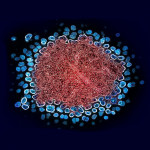People with newly diagnosed HIV who received an intervention intended to promote positive emotions wound up with higher rates of viral suppression and lower antidepressant use compared with those in a recent trial’s control group.
Publishing their findings in the Journal of Consulting and Clinical Psychology, researchers enrolled 159 people recently diagnosed with HIV in a study in which half were taught a set of positive emotion–promoting skills during five weekly sessions and the other half served as a control group.
The various facets of the intervention included focusing on daily positive events and positive personal attributes, keeping a gratitude journal, setting attainable goals and monitoring progress in achieving them, reappraising minor stressors, practicing small acts of kindness and engaging in brief daily mindfulness exercises.
After 15 months, 91 percent of those who received the intervention had a fully suppressed viral load, compared with 76 percent of those in the control group. According to the study’s authors, this difference may have been driven by better adherence to antiretroviral (ARV) treatment as well as a stronger immune system resulting from improved mental health.
ARVs, if taken daily, are highly effective at fully suppressing HIV.
At the study’s outset, about 17 percent of participants in both the intervention and control groups said they were taking antidepressants. At the 15-month mark, those respective numbers were 17 percent and 35 percent. Those who received the happiness training were also less likely to experience repeating, intrusive thoughts about HIV than those in the control group.
To read a press release about the study, click here.
To read the study abstract, click here.







Comments
Comments